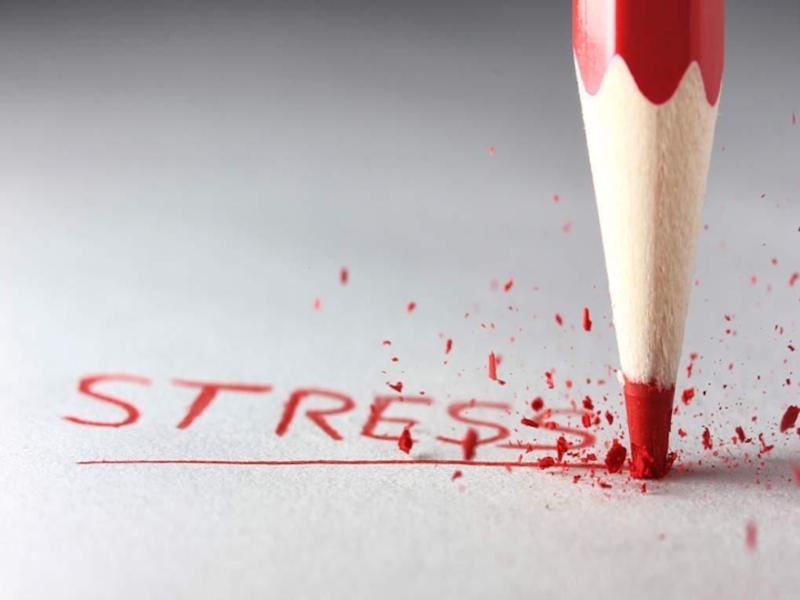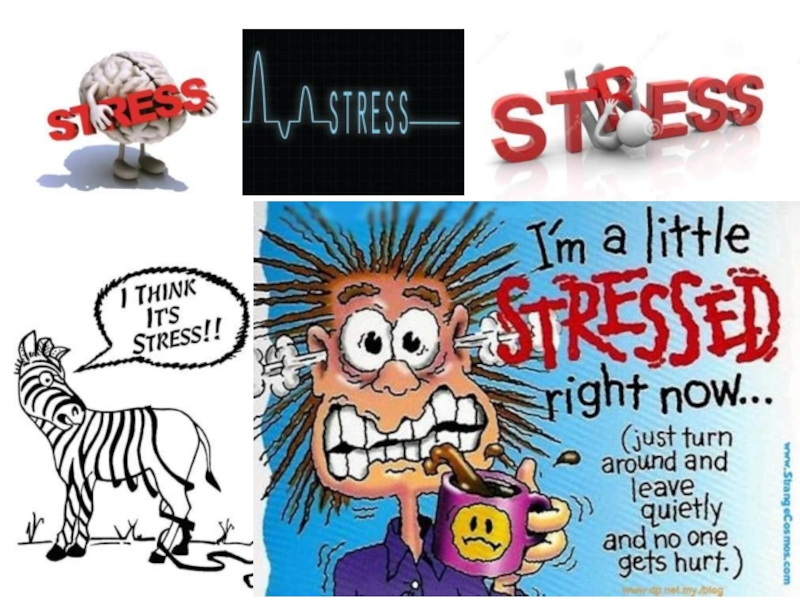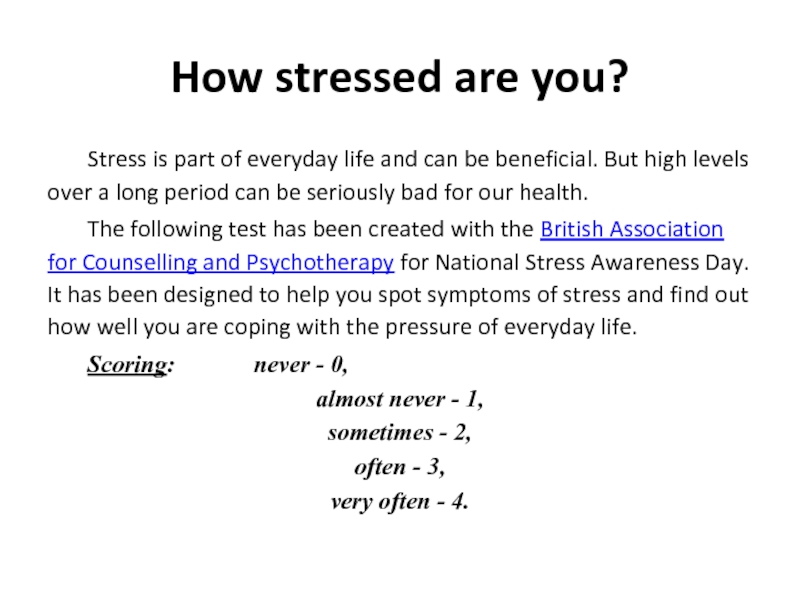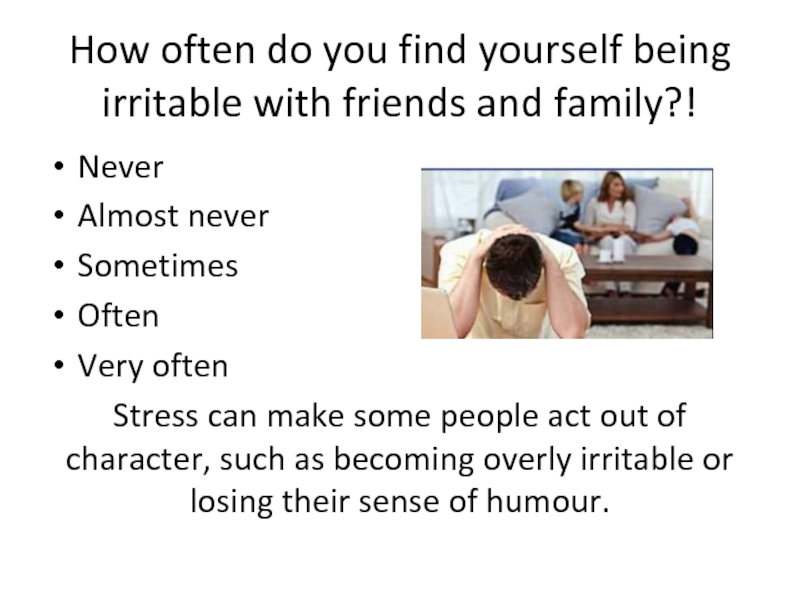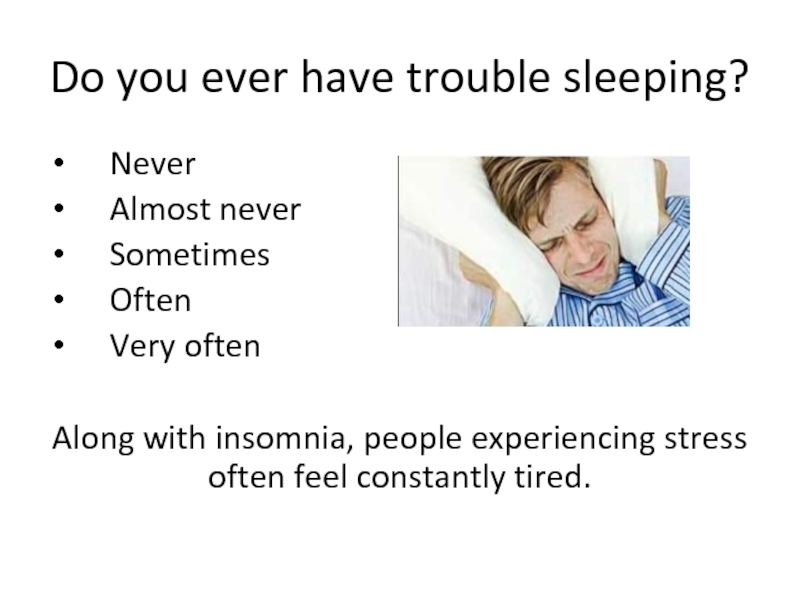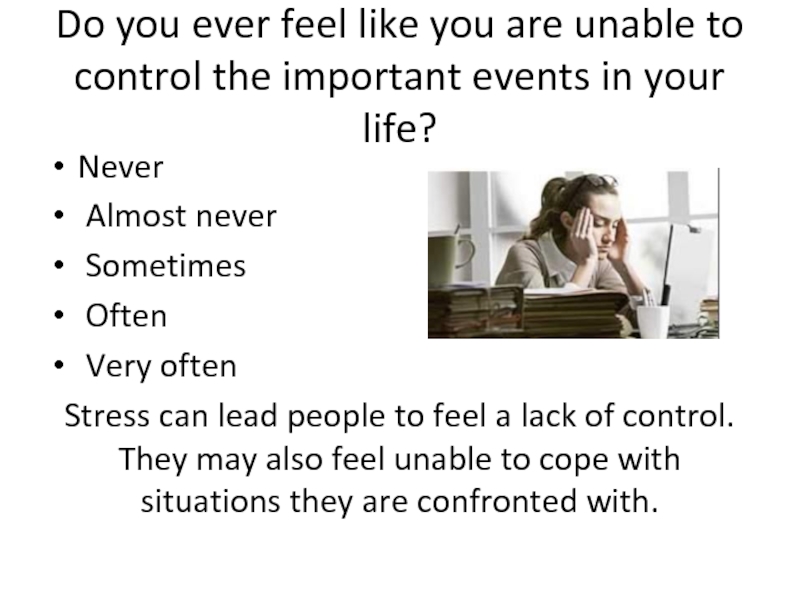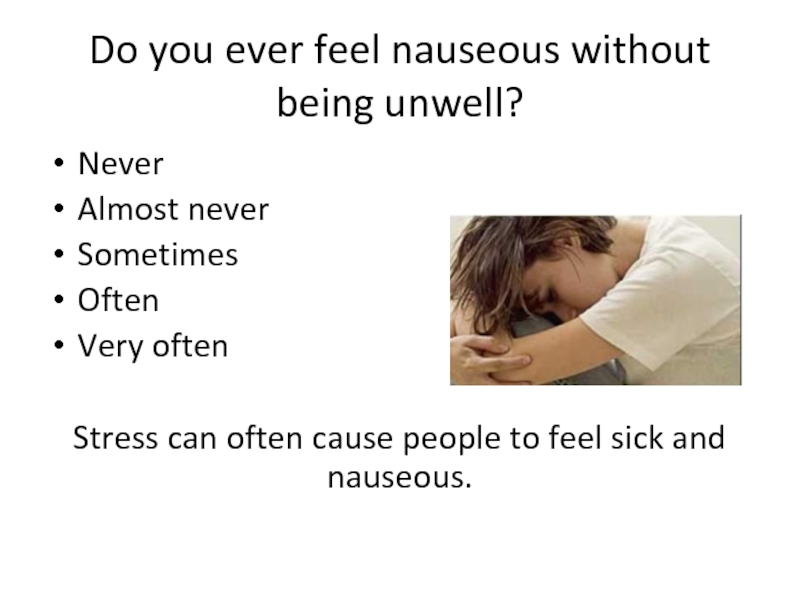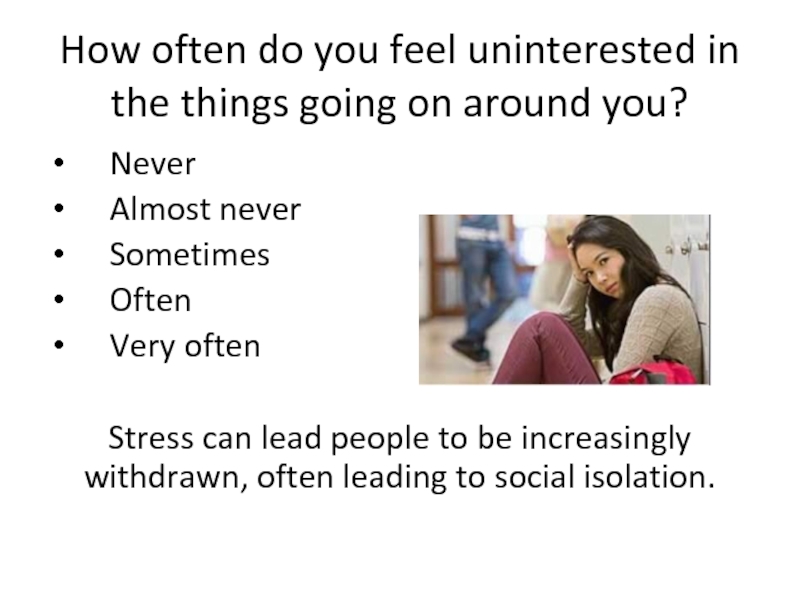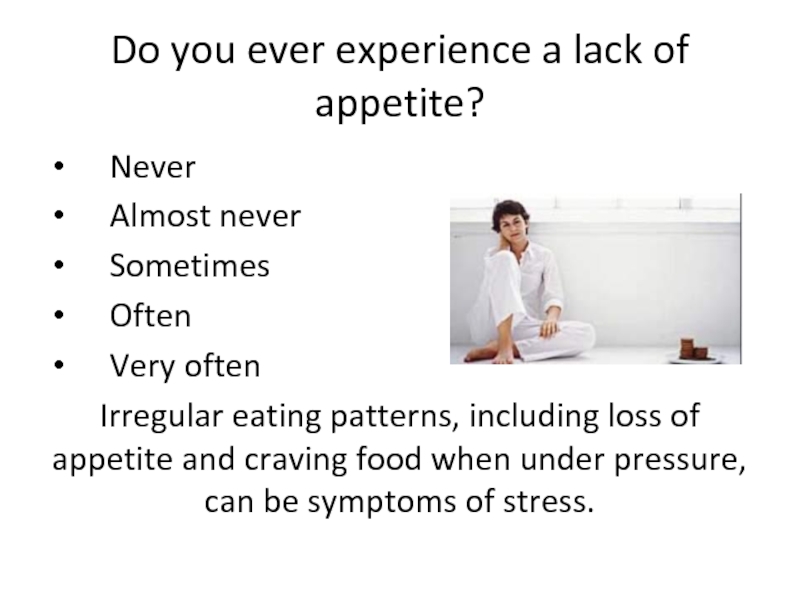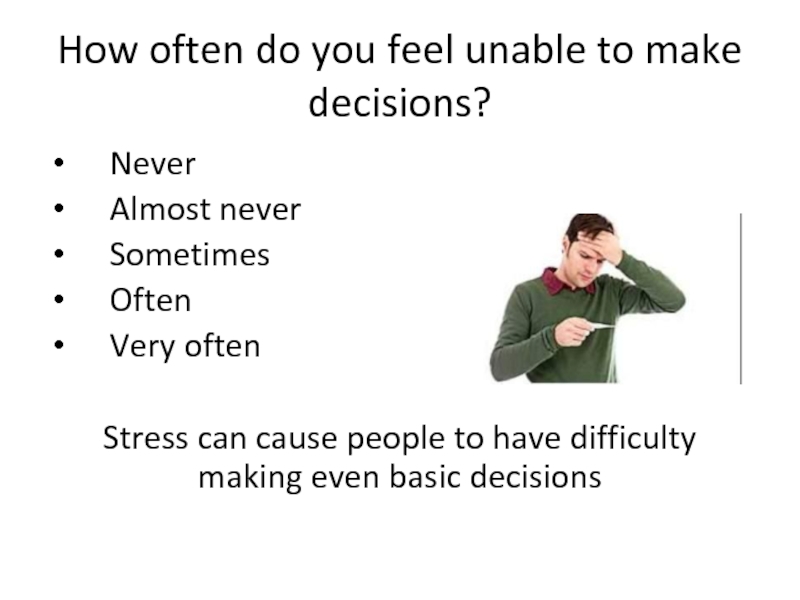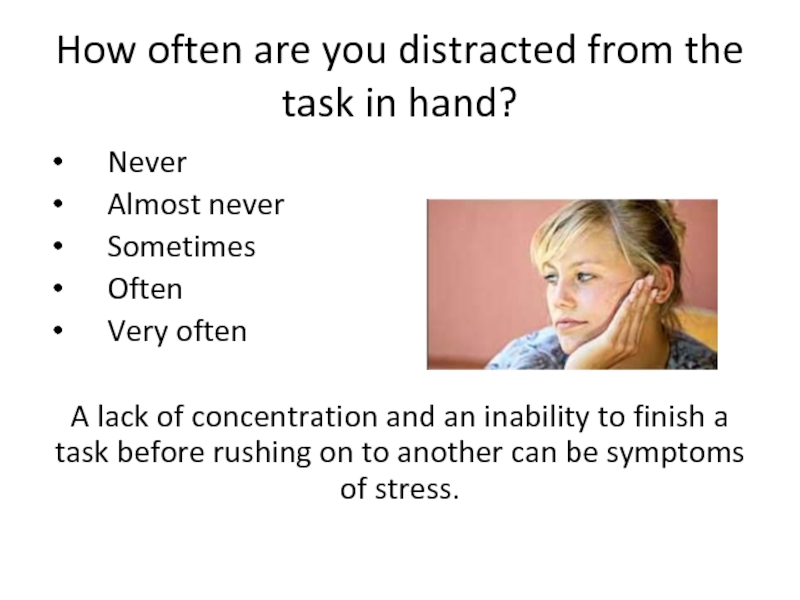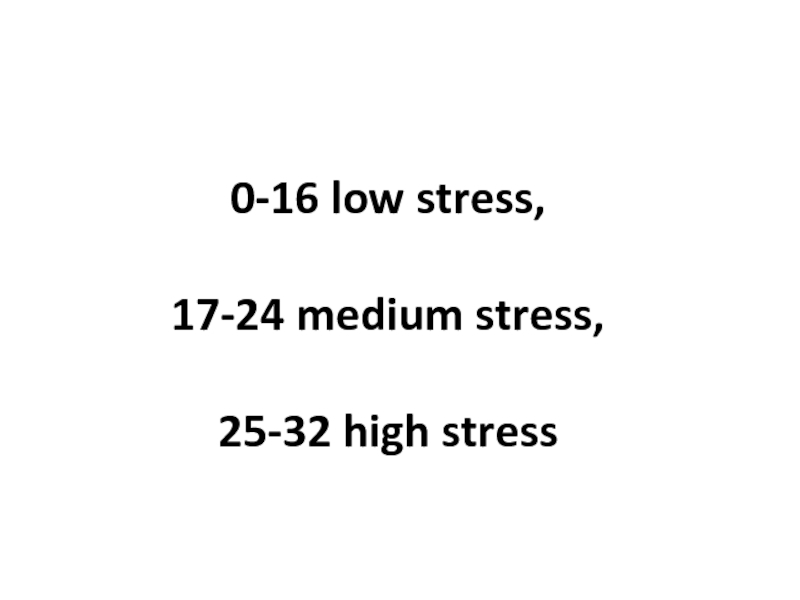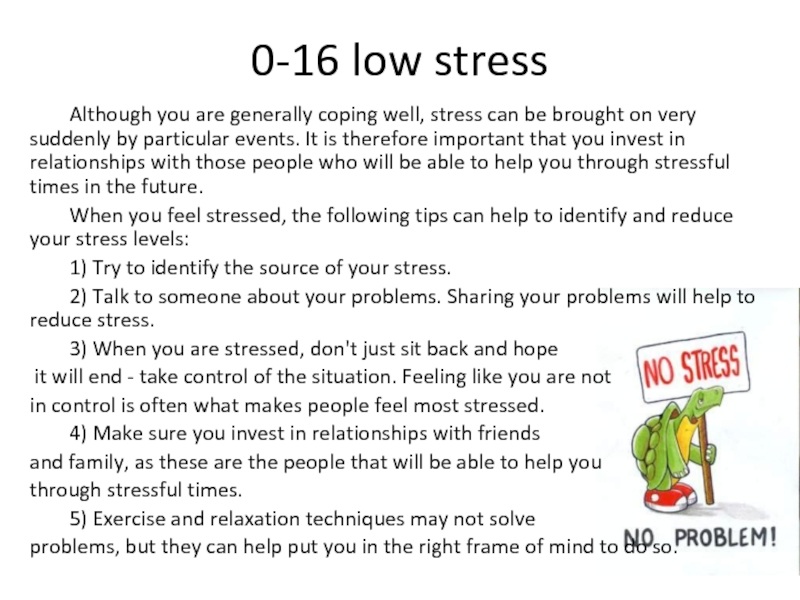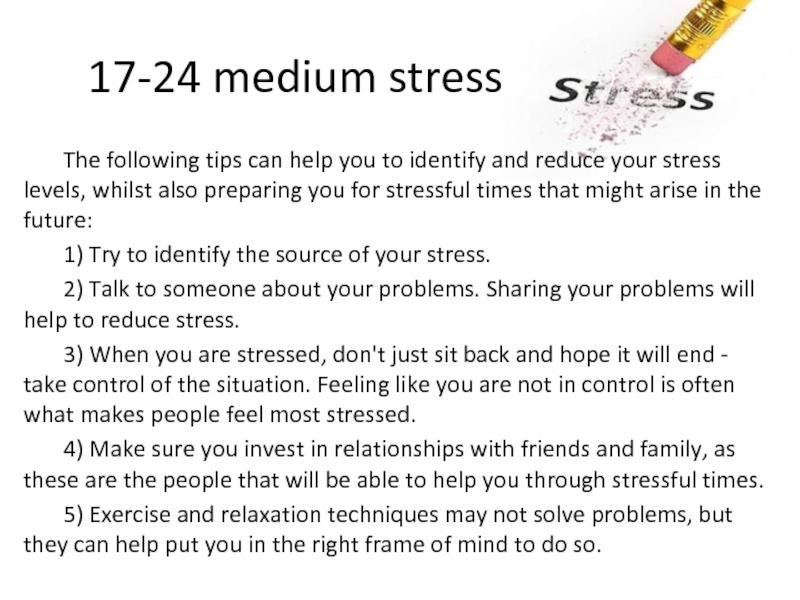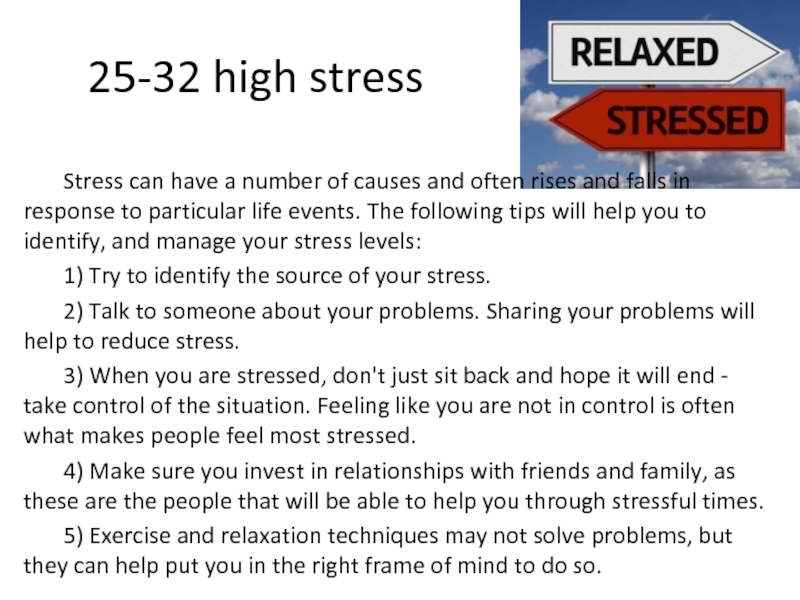Слайд 3How stressed are you?
Stress is part of everyday life and
can be beneficial. But high levels over a long period
can be seriously bad for our health.
The following test has been created with the British Association for Counselling and Psychotherapy for National Stress Awareness Day. It has been designed to help you spot symptoms of stress and find out how well you are coping with the pressure of everyday life.
Scoring: never - 0,
almost never - 1,
sometimes - 2,
often - 3,
very often - 4.
Слайд 4How often do you find yourself being irritable with friends
and family?!
Never
Almost never
Sometimes
Often
Very often
Stress can make some people act out
of character, such as becoming overly irritable or losing their sense of humour.
Слайд 5Do you ever have trouble sleeping?
Never
Almost
never
Sometimes
Often
Very often
Along with insomnia,
people experiencing stress often feel constantly tired.
Слайд 6Do you ever feel like you are unable to control
the important events in your life?
Never
Almost never
Sometimes
Often
Very often
Stress can lead people to feel a lack of control. They may also feel unable to cope with situations they are confronted with.
Слайд 7Do you ever feel nauseous without being unwell?
Never
Almost never
Sometimes
Often
Very often
Stress
can often cause people to feel sick and nauseous.
Слайд 8How often do you feel uninterested in the things going
on around you?
Never
Almost never
Sometimes
Often
Very often
Stress can lead people to be increasingly withdrawn, often leading to social isolation.
Слайд 9Do you ever experience a lack of appetite?
Never
Almost never
Sometimes
Often
Very often
Irregular
eating patterns, including loss of appetite and craving food when under pressure, can be symptoms of stress.
Слайд 10How often do you feel unable to make decisions?
Never
Almost never
Sometimes
Often
Very
often
Stress can cause people to have difficulty making even basic decisions
Слайд 11How often are you distracted from the task in hand?
Never
Almost never
Sometimes
Often
Very often
A lack of concentration and an inability to finish a task before rushing on to another can be symptoms of stress.
Слайд 120-16 low stress,
17-24 medium stress,
25-32 high stress
Слайд 130-16 low stress
Although you are generally coping well, stress can
be brought on very suddenly by particular events. It is
therefore important that you invest in relationships with those people who will be able to help you through stressful times in the future.
When you feel stressed, the following tips can help to identify and reduce your stress levels:
1) Try to identify the source of your stress.
2) Talk to someone about your problems. Sharing your problems will help to reduce stress.
3) When you are stressed, don't just sit back and hope
it will end - take control of the situation. Feeling like you are not
in control is often what makes people feel most stressed.
4) Make sure you invest in relationships with friends
and family, as these are the people that will be able to help you
through stressful times.
5) Exercise and relaxation techniques may not solve
problems, but they can help put you in the right frame of mind to do so.
Слайд 14 17-24 medium stress
The following tips can help you to identify
and reduce your stress levels, whilst also preparing you for
stressful times that might arise in the future:
1) Try to identify the source of your stress.
2) Talk to someone about your problems. Sharing your problems will help to reduce stress.
3) When you are stressed, don't just sit back and hope it will end - take control of the situation. Feeling like you are not in control is often what makes people feel most stressed.
4) Make sure you invest in relationships with friends and family, as these are the people that will be able to help you through stressful times.
5) Exercise and relaxation techniques may not solve problems, but they can help put you in the right frame of mind to do so.
Слайд 15 25-32 high stress
Stress can have a number of causes and
often rises and falls in response to particular life events.
The following tips will help you to identify, and manage your stress levels:
1) Try to identify the source of your stress.
2) Talk to someone about your problems. Sharing your problems will help to reduce stress.
3) When you are stressed, don't just sit back and hope it will end - take control of the situation. Feeling like you are not in control is often what makes people feel most stressed.
4) Make sure you invest in relationships with friends and family, as these are the people that will be able to help you through stressful times.
5) Exercise and relaxation techniques may not solve problems, but they can help put you in the right frame of mind to do so.
